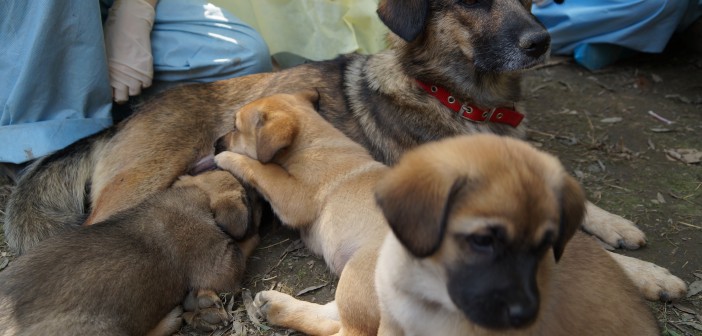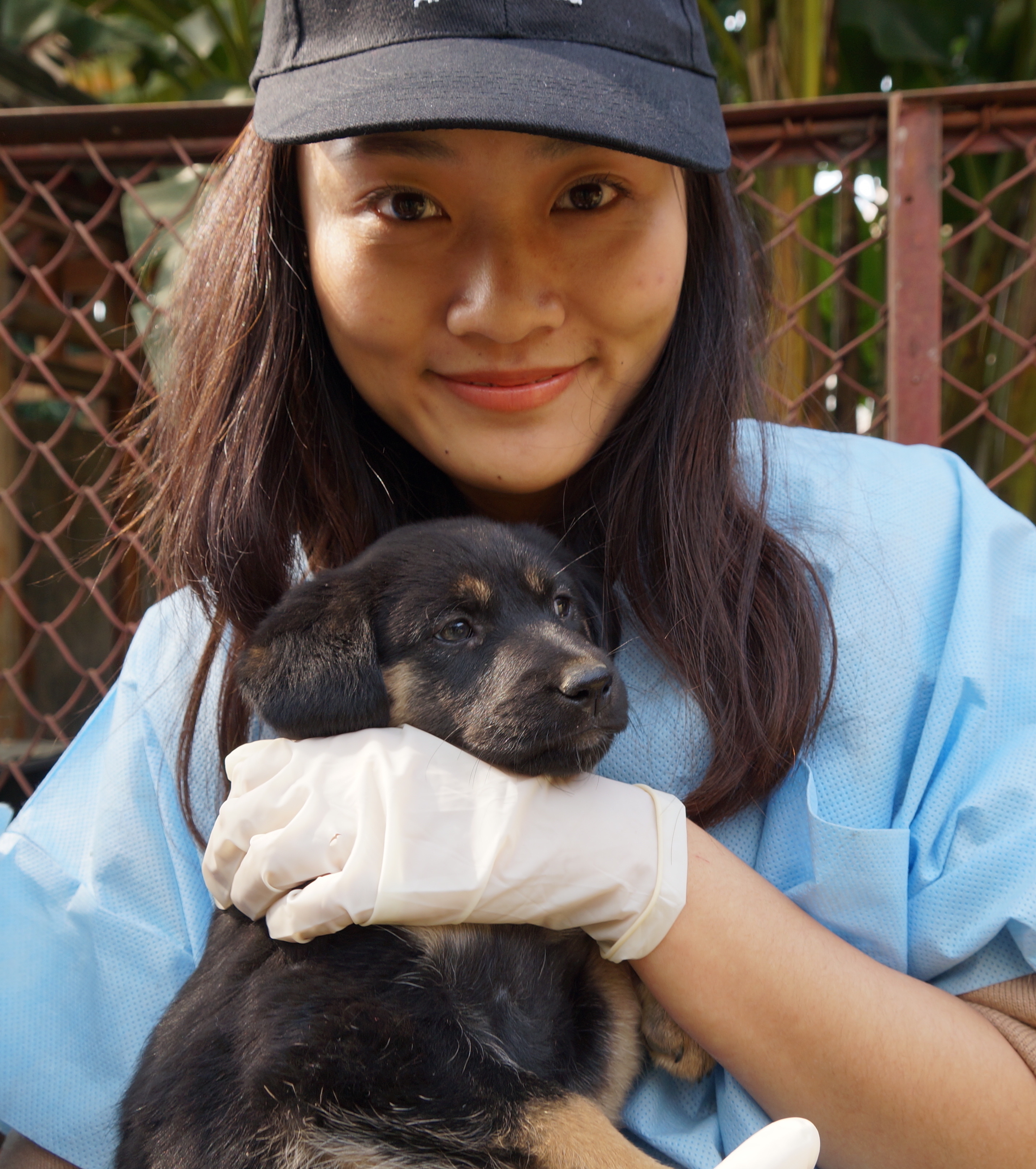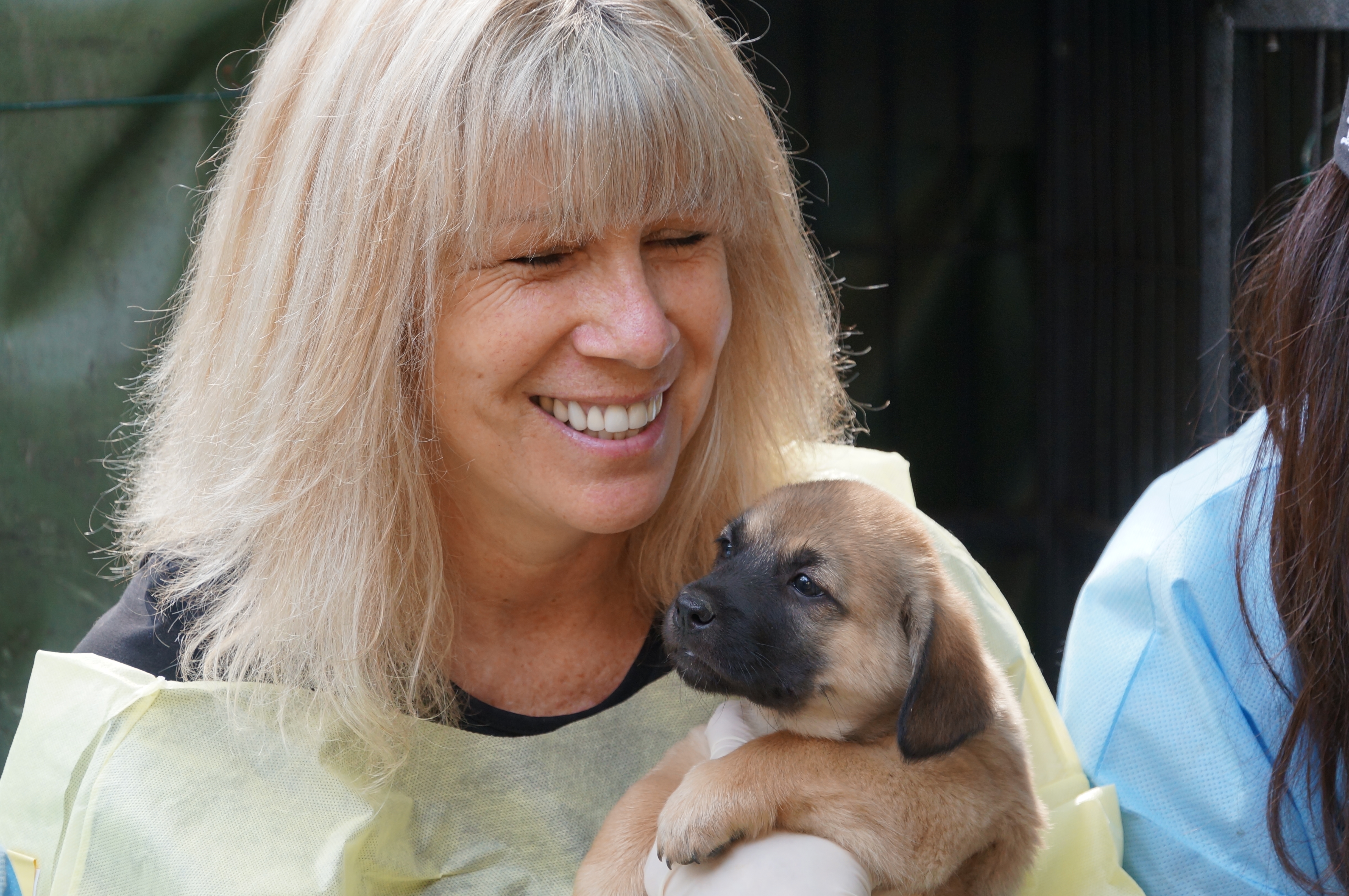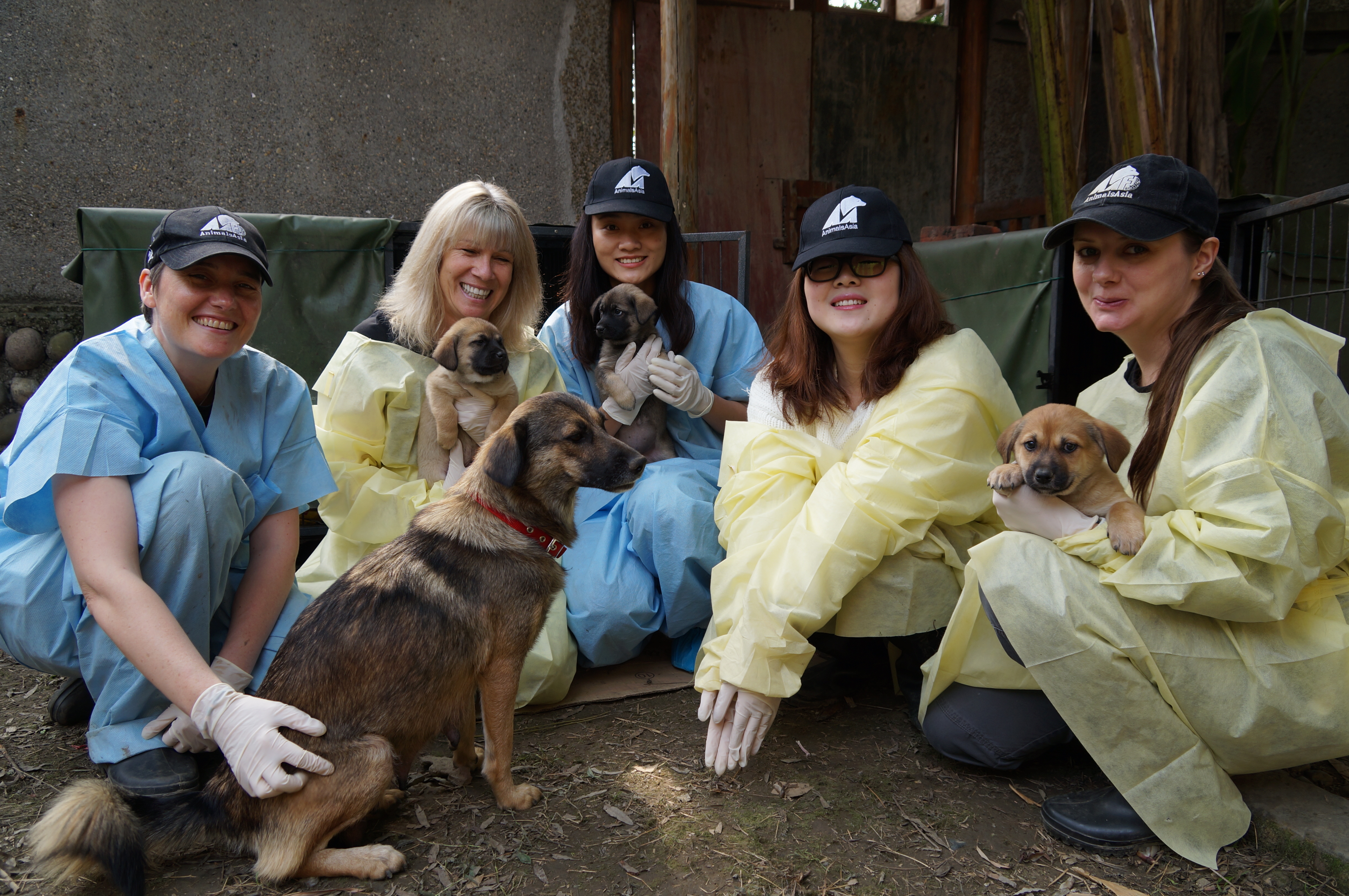(All photos courtesy Animals Asia Foundation. All rights reserved)
A group of six puppies that narrowly escaped death after being buried alive in China have been given a new lease of life by international animal welfare organisation, Animals Asia.
The Hong Kong-based charity’s vets originally stepped up to help the puppies and their mother who were rescued and cared for by students after being buried alive on a university campus in Lanzhou, western China. They’re now set to be rehoused with owners in the US and UK.
The tragedy of the mixed breed puppies caused widespread controversy after the story appeared in the international press. According to media reports, a group of security guards at Lanzhou University of Finance and Economics had buried the stray dogs alive.
A group of students heard dogs barking and, on closer investigation, saw an area of freshly laid turf. They started digging and found the helpless pups, who were thought to be just five weeks old as they were still suckling on their mother, named ‘Bear’.
Chinese media reported that the students, who did not wish to be identified, then cared for the dogs – hiding them in a nearby house and regularly bringing them meals.
Jill Robinson, CEO and founder of Animals Asia, took up the story:
“As soon as we were alerted to the story our Cat and Dog Welfare team, based in China, contacted Lanzhou University of Finance and Economics to try to track down these incredible young people and the dogs.
“We managed to find them and made contact. Since the rescue in September the students have been taking it in turns to feed Bear while she fed her own pups. We helped by providing dog food and bedding and advising on their care.”
Without round-the-clock supervision, four of the seven puppies went missing in the weeks that followed, although one was later found again.
Jill said:
“Thankfully, Bear and her remaining four puppies are now living at our sanctuary in Chengdu, along with two other puppies the students rescued after they too had been buried alive.
“They’re all currently awaiting rabies vaccinations, neutering and other medical checks, and in the new year will start new lives abroad. Lord Robin Russell, one of our long time supporters in the UK, contacted us after his wife Lady Stephanie Russell read the story, and he then offered to pay for the dogs to be cared for and re-homed in the UK and the USA, utilising our expertise on the ground to make that happen. Lord and Lady Robin Russell are also expected to adopt Bear and are helping to find homes for the pups.
“We owe a huge debt of gratitude to them for their help and financial aid in making all this happen and making it a happy ending for these traumatised puppies.”
Stray dogs are seen as a problem in China and, while there’s a growing generation of dog lovers in the country, many are still seen as pests. This is because of concerns over rabies and irresponsible dog ownership, for example abandoning dogs and failing to sterilise cats and dogs resulting in over population.
Animals Asia’s Cat and Dog Welfare team met with officials at the Lanzhou University of Finance and Economics, to offer advice on animal welfare and dealing with the issue of stray dogs on campus more humanely.
Jill said: “The university representative was himself shocked by the incident and said they do not condone animal cruelty – indeed, as an education facility they feel they should promote the concept of caring for all living creatures, and to this end they are investigating the incident to ensure such a thing never happens again.”
The university did, however, express concern for the problem of stray dogs and the long-term potential risks, and agreed to educate and encourage students not to keep pets on campus. In addition, students have welcomed Animals Asia’s offer to neuter and sterilise stray dogs on campus. This will effectively control and reduce the number of strays, and soften the temperament of those remaining, further reducing any health risks to students.
Jill continued: “China is often in the headlines for questionable practices regards animal welfare, but it is important to recognise that a great many people in China are kind, compassionate and dedicated to caring for animals. These students, and the staff we met with, are no exception. They acted swiftly to rescue the puppies and then dedicated time and effort to caring for them, so we hail them as heroes for their actions. They are a credit to the university and to all animals.”
For further information, contact:
Tim Ash
Public Relations Manager
timash@animalsasia.org+84 1668 905176
Vietnam








